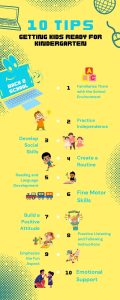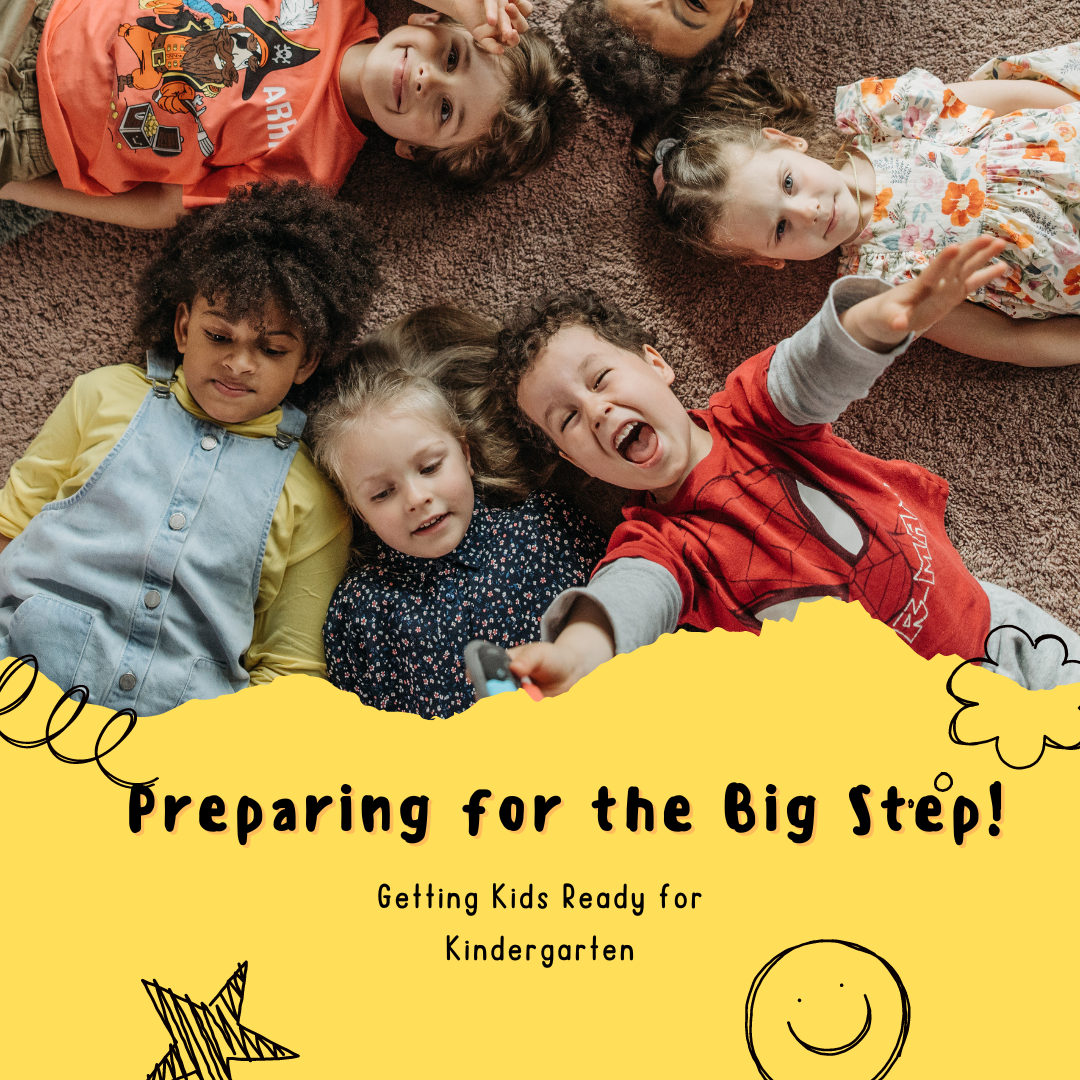The transition from preschool to kindergarten is a significant milestone in a child’s life. As parents and caregivers, it’s natural to feel a mix of excitement and anxiety as your little ones embark on this new adventure. To ensure a smooth and successful start to their kindergarten journey, thoughtful preparation is key. In this post, we’ll explore essential tips on how to get kids ready for kindergarten.

Familiarize Them with the School Environment:
Visiting the kindergarten before the first day can help ease any anxieties your child may have. Take a tour of the school, explore the classrooms, and let your child become acquainted with the playground. This will help them feel more comfortable and confident on their first day.
Practice Independence:
We guess you might have been trying to do this already. Encourage self-sufficiency by teaching your child to perform basic tasks independently. This includes using the restroom, washing hands, and zipping up their backpack. Independence fosters a sense of confidence that will serve them well in the classroom.
Develop Social Skills:
Just in case your child did not attend preschool, kindergarten is a place for kids to build new friendships and interact with peers. Organize playdates or attend social gatherings where children can practice sharing, taking turns, and resolving conflicts peacefully. These social skills will help them make friends and adapt to the kindergarten environment more easily.
Create a Routine:
Establishing a daily routine can provide a sense of stability and predictability for your child. Practice waking up at a consistent time, having breakfast together, and engaging in play or learning activities before school. This will help them adjust to the kindergarten schedule smoothly.
Reading and Language Development:
Encourage a love for reading by incorporating books into your daily routine. Reading aloud to your child helps expand their vocabulary, improves language skills, and fosters a strong foundation for learning.
Fine Motor Skills:
Kindergarten activities often involve drawing, writing, and crafting. Engage in fun activities that promote fine motor skills, such as coloring, cutting, and playing with building blocks. These activities enhance their hand-eye coordination and make them more prepared for classroom tasks.
Build a Positive Attitude:
Talk positively about kindergarten, highlighting all the exciting things they’ll learn and the friends they’ll make. Avoid expressing any anxieties you may have as it can affect their perception of the new experience. Instead, focus on the opportunities and adventures that await them.
Practice Listening and Following Instructions:
Developing good listening skills is crucial for success in kindergarten. Engage your child in games that require following instructions, like Simon Says or simple treasure hunts. This will help them understand and follow the teacher’s directions during class.
Emphasize the Fun Aspect:
Make kindergarten feel like an exciting adventure rather than a daunting task. Talk about all the fun activities they’ll get to do, the stories they’ll hear, and the new games they’ll play. Emphasizing the enjoyment aspect will help build anticipation and excitement.
Emotional Support:
As the big day approaches, be emotionally available and understanding. Validate their feelings and reassure them that it’s okay to feel a mix of emotions about starting kindergarten. A supportive and nurturing environment at home will help them approach this new chapter with confidence.
These tips, you can help your child make a seamless transition into kindergarten, setting them up for a positive and enriching educational journey. Remember, every child is unique, and adapting these strategies to suit their individual needs will make all the difference. Celebrate this milestone, cherish the memories, and watch with pride as your child takes their first steps towards a lifetime of learning and growth.






